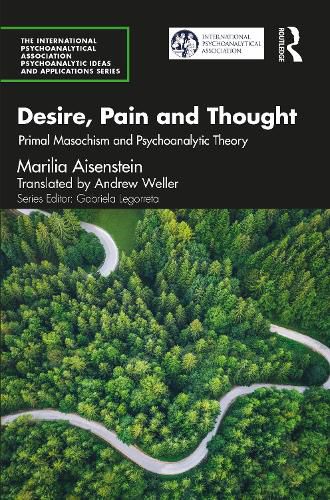Readings Newsletter
Become a Readings Member to make your shopping experience even easier.
Sign in or sign up for free!
You’re not far away from qualifying for FREE standard shipping within Australia
You’ve qualified for FREE standard shipping within Australia
The cart is loading…






Desire, Pain and Thought presents a new perspective on primal erotogenic masochism, which Marilia Aisenstein regards as the core of psychoanalytic theory.
Aisenstein distinguishes between pathological masochism - the active search for pain - and primal erotogenic masochism, which she believes develops in early childhood. Desire, Pain and Thought explains that the formation of this response in a child is essential to the survival of the individual and the development of resilience. Aisenstein skilfully and convincingly uses her deep understanding of metapsychology and her mastery of Freud's seminal papers to demonstrate that thought is one of the manifestations of desire which implies a painful renunciation of the object of desire. By moving away from its pathological, negative connotation to a more positive one, the book presents an understanding of masochism as "the guardian of life".
Desire, Pain and Thought will be essential reading for psychoanalysts in practice and in training.
$9.00 standard shipping within Australia
FREE standard shipping within Australia for orders over $100.00
Express & International shipping calculated at checkout
Desire, Pain and Thought presents a new perspective on primal erotogenic masochism, which Marilia Aisenstein regards as the core of psychoanalytic theory.
Aisenstein distinguishes between pathological masochism - the active search for pain - and primal erotogenic masochism, which she believes develops in early childhood. Desire, Pain and Thought explains that the formation of this response in a child is essential to the survival of the individual and the development of resilience. Aisenstein skilfully and convincingly uses her deep understanding of metapsychology and her mastery of Freud's seminal papers to demonstrate that thought is one of the manifestations of desire which implies a painful renunciation of the object of desire. By moving away from its pathological, negative connotation to a more positive one, the book presents an understanding of masochism as "the guardian of life".
Desire, Pain and Thought will be essential reading for psychoanalysts in practice and in training.